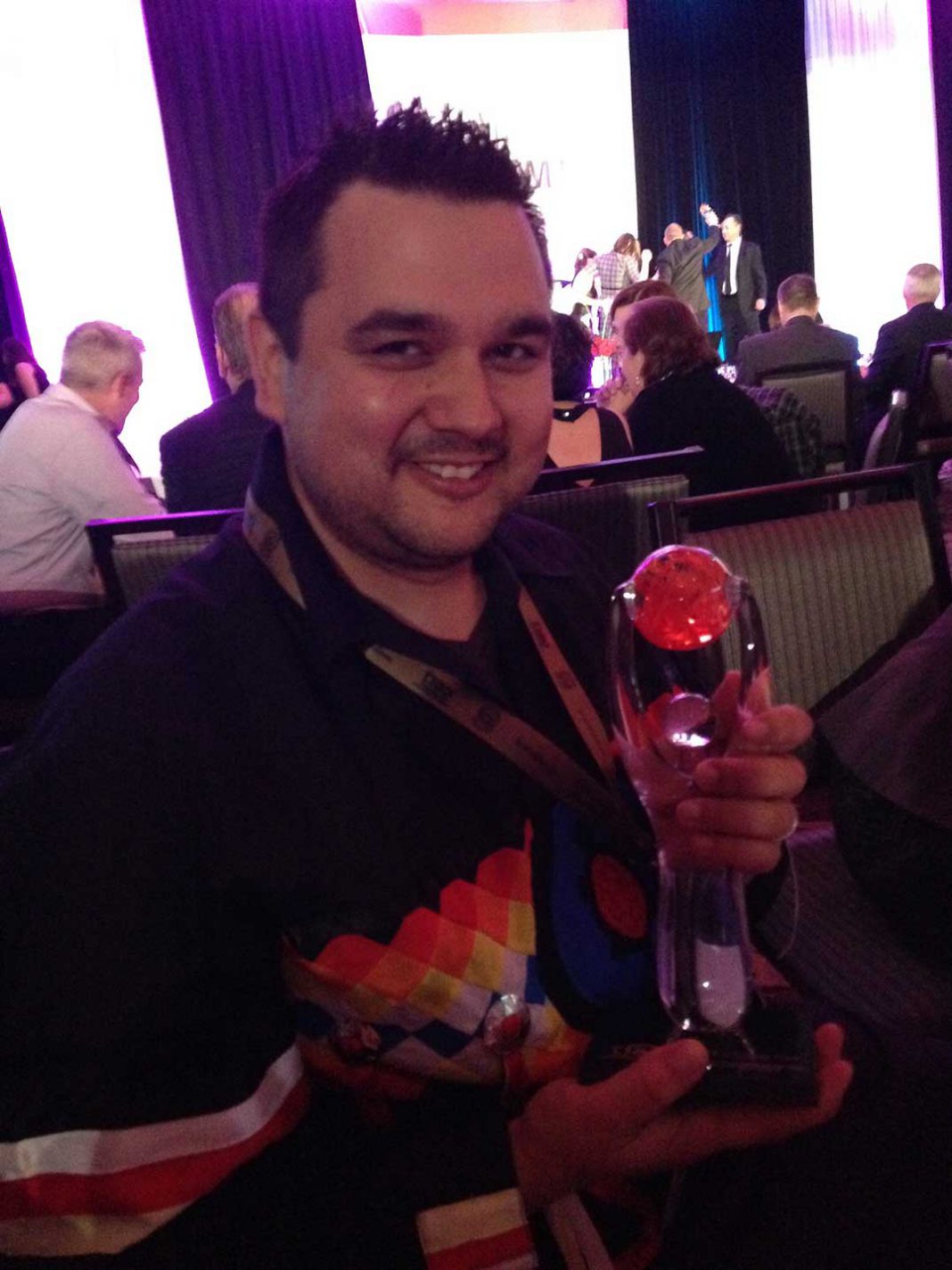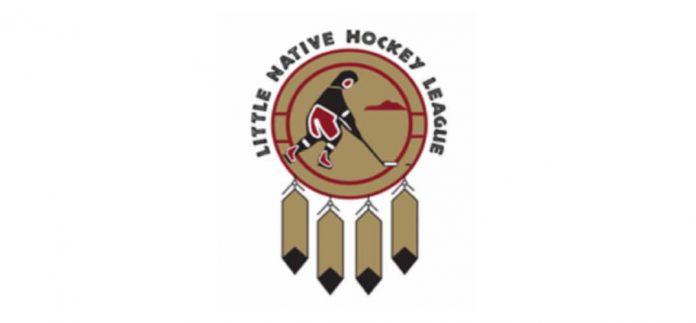AUNDECK OMNI KANING—It has been quite a journey for Kevin Eshkawkogan, the former CEO of the Great Spirit Circle Trail who now heads up Indigenous Tourism Ontario, but the memories and the view along the ride is something he wouldn’t give up for the world.
The Indigenous tourism pioneer sat down with The Expositor to discuss his experiences during his career with the Great Spirit Circle Trail, the importance mentors have played in his building of a successful career and how becoming a parent has changed his view of what is important in life.
Mr. Eshkawkogan started out his journey earning a diploma in Business-Accounting from Canadore College. He is also a graduate of the University of Waterloo’s Economic Development Program and Confederation College’s Small Business Counseling Program. He also studied accounting through the Certified General Accountants program and has studied Political Science at York University.
“I actually started out my time with the GSCT on a part-time volunteer basis,” he recalled. Mr. Eshkawkogan was employed as a Business Development Officer (BDO) at Waubetek Business Services, where during his years of work with that agency he assisted in placing investments in over 100 aboriginal businesses, helping them expand or become operational. He was also instrumental in assisting with several major community development projects, including the Manitoulin Hotel and Conference Centre in Little Current. Eleven years later, he is now moving on to head up another tourism-focussed enterprise.
“But it was Waubetek that helped me get involved with the GSCT,” he said. “I was fresh out of school and I was asked if I would be willing to help out on a volunteer basis.” Soon he was working with the likes of Waubetek general manager Dawn Madahbee and Matthew Owl to establish the GSCT on the global tourism stage.
Central to the success of the GSCT has been its focus on cultural authenticity and its deep roots in respecting, rather than exploiting, Indigenous culture.
“Back in the day we found there were a lot of non-Indigenous tour operators coming into our territories bringing tourists, but providing guides with questionable knowledge of our culture and traditions,” he said. There was a healthy demand for the experience of Indigenous culture, particularly in Central Europe with its long-held fascination rooted in the fictional adventures of Old Shatterhand and his friend Winnetou, written in the pre-WWI years by German Karl May. Mr. May, as it happens, had never met an Indigenous person from North America, so there were plenty of myths and misconceptions ingrained in German popular culture. To understand the depth of those myths, consider that Mr. May’s works are analogous to the Knights of the Round Table or Robin Hood to the British.
“It was a pretty exciting time for a young guy, basically fresh out of school,” recalled Mr. Eshkawkogan. He found himself heading to travel conferences and conventions across Europe, and meeting with politicians and business leaders both at home and abroad.
Between 2003 and 2006 he found himself in roles with ever-increasing responsibilities with the GSCT, until finally taking on the role of full time manager.
Mr. Eshkawkogan equates the story of the GSCT with the rise of cultural tourism in the modern era. “The story of the Circle Trail is a case study for cultural tourism,” he said. “It started out around 1997-1998 in response to a lot of non-Indigenous groups giving tours and offering incorrect information. We said to ourselves, ‘we should be telling our own stories’,” he recalled. The solution was clear. “To do that we needed to become involved in the industry.”
The approach of the Indigenous players was completely different. “It has always been a part of the GSCT to have cultural authenticity,” he said. “We developed cultural integrity guidelines, and those guidelines have been reviewed virtually every year since 1997.”
The foundations of those guidelines were built through extensive consultation with elders and knowledge keepers in the communities. It was a case of not selling out the culture. “It all boils down to the way you do things,” he said. The guidelines set the standard for cultural tourism that maintains an essential integrity. If something would exploit the culture in an inappropriate way, there was a simple solution. “You simply don’t do it,” said Mr. Eshkawkogan. “We follow the rules.”
The GSCT’s approach has set the standard for Indigenous tourism globally and he has found himself providing guidance to Indigenous groups around the world, from South America, to New Zealand and Australia and Asia.
The success of the GSCT and the subsequent demands it has placed on his life provided some real challenges as he grew older, however.
“It was a great way to see the world,” he said. “I would recommend it to any young person. I had an incredible experience for 20 years of my life, and I am grateful for that. But I am in my 40s now and I have a young family. My first priority is to be a good parent. If I am a good father, I measure that as success now.”
In fact, Mr. Eshkawkogan traces a large part of his success during his years at the GSCT down to family. “I have family roots in communities all across the Island and the North Shore,” he said. “I could go into any community and find someone with whom I have family connections. I was able to get them involved.” His role was not that of an outsider to the community.
The role of the GSCT evolved quite quickly as it got rolling, sometimes in ways that unsettled its founders. “As we travelled around the world and explored our own communities to market product, we often found ourselves having to develop the product in order to have it to market,” he said. “We found markets and needs, but we needed the product to meet those needs.”
With his backgrounds in marketing and political science, Mr. Eshkawkogan discovered that he had the talents knowledge to help make things happen.
The Manitoulin Hotel and Conference Centre was one of those products that filled a gaping niche in the product mix. “It has been quite a learning experience,” he said of the hotel project. “But we learn with every mistake and we are building the expertise for success.”
The GSCT quickly discovered that there were labour shortages in the market as well. Shortages of bodies and shortages of skills. “So we established guide training programs,” he said. But one of the great things that has come about with the growth of other sectors in the Indigenous economy is that new partners have arisen that can take over those roles. “We have institutions like Kenjgewin Teg (Educational Institute) that can take on that role and do it very well,” he said.
Mr. Eshkawkogan said that he is confident in the future of the GSCT going forward. “The tour company has a substantial amount of business to handle now,” he said. “The GSCT are leaders in the Indigenous tourism sector for our region. I think we have exceeded the original vision and that provides a perfect exit point for me. A new manager will bring with them new vision and put it into reality. There is a great staff there who will help them put that vision into reality. But it needs to be a new vision, it can’t be Kevin Eshkawkogan’s vision.”
The danger, he notes, is that someone can take on a leadership role and lose track of the community’s needs and perspective—it can become too much about them. “I have never been one to seek out the spotlight,” he said. “I may have found myself in it now and then, but I have always preferred to work in the background and out of the limelight.”
There is still plenty of work to do going forward, however, including capacity building, but Mr. Eshkawkogan said he is comfortable that the communities will pull together to make that happen.
“Sometimes you have to have patience, it takes a while, you have to invest a whole lot of time,” he said. “Waubetek did that with the GSCT, are still doing it, but it is paying off.”
Mr. Eshkawkogan also operates KSK Business Solutions, opened Spirit Island Adventures in 2012, with his partner Melissa. He is an avid hunter, fisherman and a grass dancer on the powwow circuit who enjoys participating in traditional powwows throughout Manitoulin Island. He is one of a new generation of empowered Indigenous movers and shakers that believes fervently in the power of economic development to build a better world for First Nation communities. Today it is tourism, but in the future, who knows? One thing is for certain, despite his eschewing of the limelight, Mr. Eshkawkogan will likely be somewhere near the front of the action.




